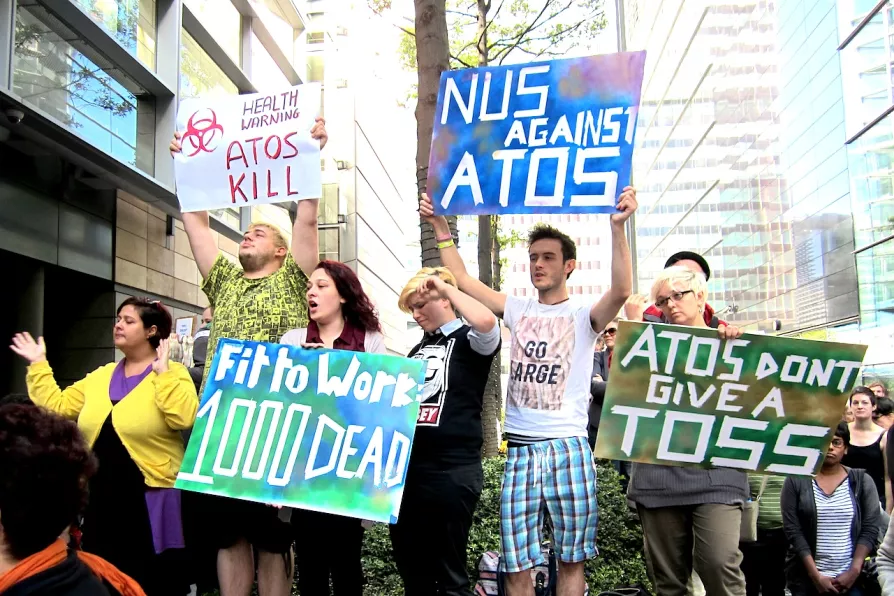Climate activist and writer JANE ROGERS introduces her new collection, Fire-ready, and examines the connection between life and fiction
How and why the most vulnerable are under attack
Crippled is a harrowing account of how austerity has impacted on millions of disabled people, says CARLOS MARTINEZ

 Fighting back: Disabled people demonstrate against 'fit for work' reviews
[Andy Worthington]
Fighting back: Disabled people demonstrate against 'fit for work' reviews
[Andy Worthington]
Crippled: Austerity and the Demonisation of Disabled People
by Frances Ryan
(Verso, £12.99)
IN GIVING a voice to millions of disabled people, Frances Ryan’s Crippled is urgent and essential reading.
It provides comprehensive statistical evidence demonstrating that disabled people have been disastrously and disproportionately affected by the last decade of public spending cuts, combined with interviews and case studies showing just how badly our society is failing.
Similar stories

Ben Cowles speaks with IAN ‘TREE’ ROBINSON and ANDY DAVIES, two of the string pullers behind the Manchester Punk Festival, ahead of its 10th year show later this month

In an exhibition of the graphic art of Lorna Miller, MATT KERR takes a lungful of the oxygen of dissent
Read Sisters, the journal of the National Assembly Of Women, below.

ANDY HEDGECOCK relishes two exhibitions that blur the boundaries between art and community engagement










